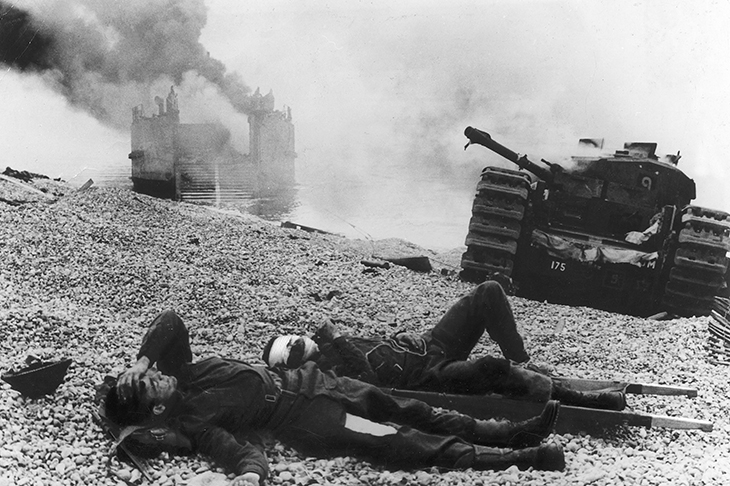In carefree days which now seem so distant we used occasionally to take the Newhaven-Dieppe ferry. Docking after a long lunch, I would try to imagine the port during the infamous Dieppe Raid of August 1942. It is so clearly a natural defensive position that I could never work out how they expected to take it or, more importantly, why. This book sets out to answer both questions and, thanks to the release of previously classified wartime files, largely succeeds. It also throws new light on Ian Fleming, who was there.
Dieppe in those days was intensively fortified by the Germans, flanked by heavy guns on the cliffs. Just about every inch of the docks was covered by concealed machine guns and cannon, including a captured French tank. It was designed to repel exactly the sort of full-frontal attack the Allies — overwhelmingly Canadian, with British commandos and a sprinkling of Poles, Free French, Belgians, Norwegians and Americans — obligingly mounted.
‘What were you trying to do?’ a puzzled German asked the captured principal military landing officer
Under the overall command of Mountbatten, chief of combined operations, this was a far larger raid than any previously attempted — about 6,000 men, 250 ships and boats, more than 30 Churchill tanks and enough aircraft for 70 pilots to be killed or missing and 106 planes shot down. It was also highly complex, with the different elements requiring to-the-minute timing, the failure of any one of which affected all others. Planning was about what we would do, and took no account of what the enemy might do.
It was a disaster. Everything went wrong from the start. The crucial element of surprise was lost; timings went awry; communications failed; troops landed in the wrong places; the tanks never got off the beach; there was no effective fire suppression of the German guns.







Comments
Join the debate for just £1 a month
Be part of the conversation with other Spectator readers by getting your first three months for £3.
UNLOCK ACCESS Just £1 a monthAlready a subscriber? Log in